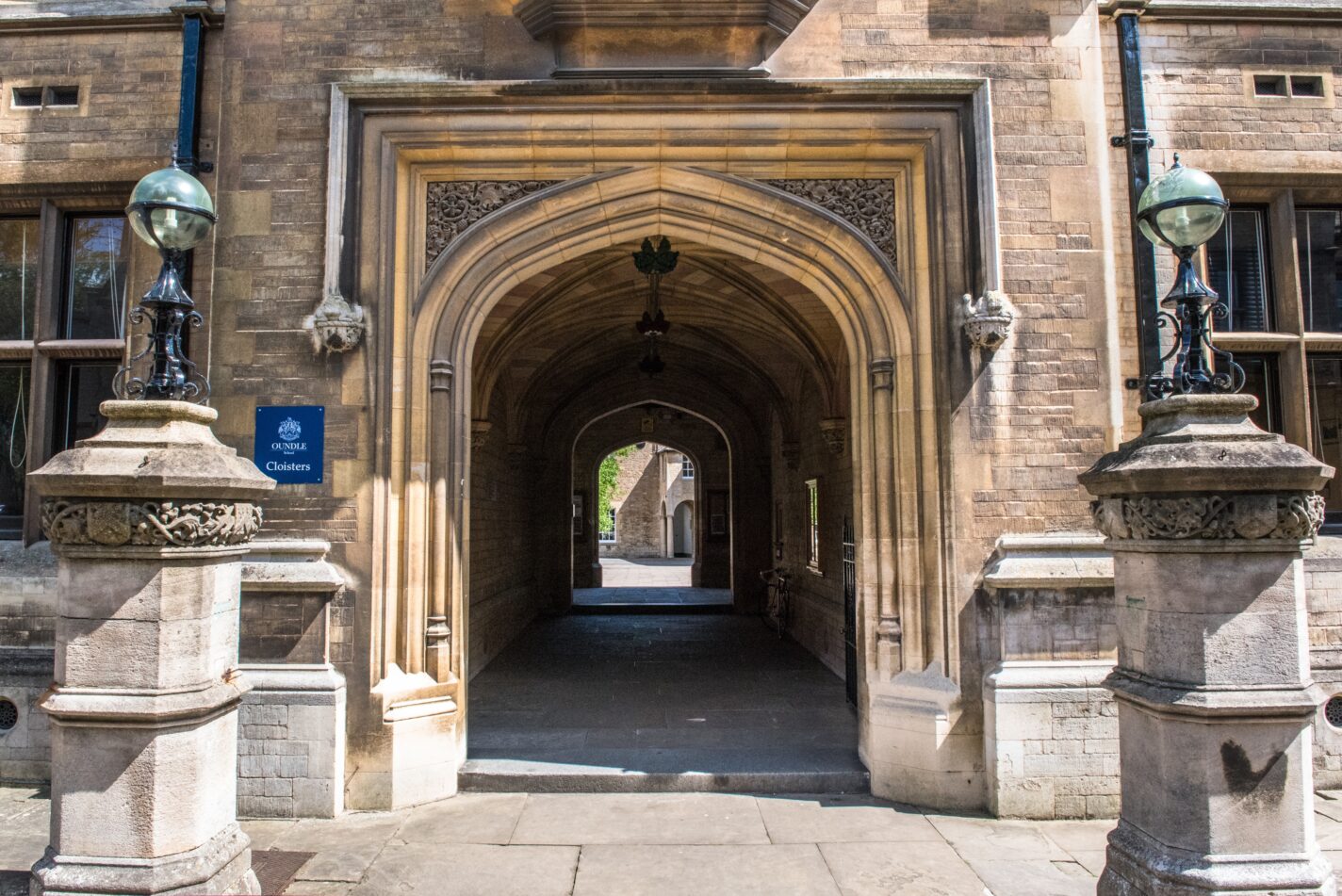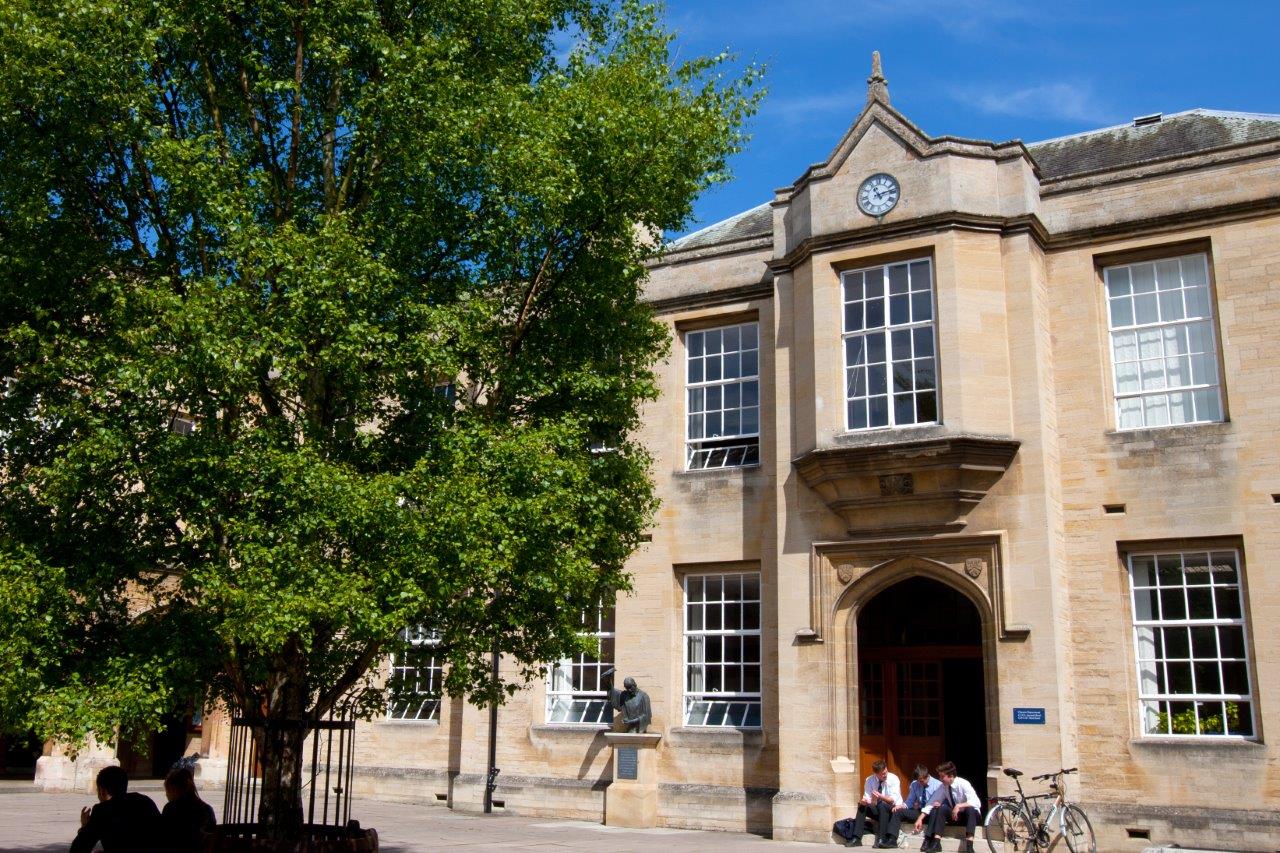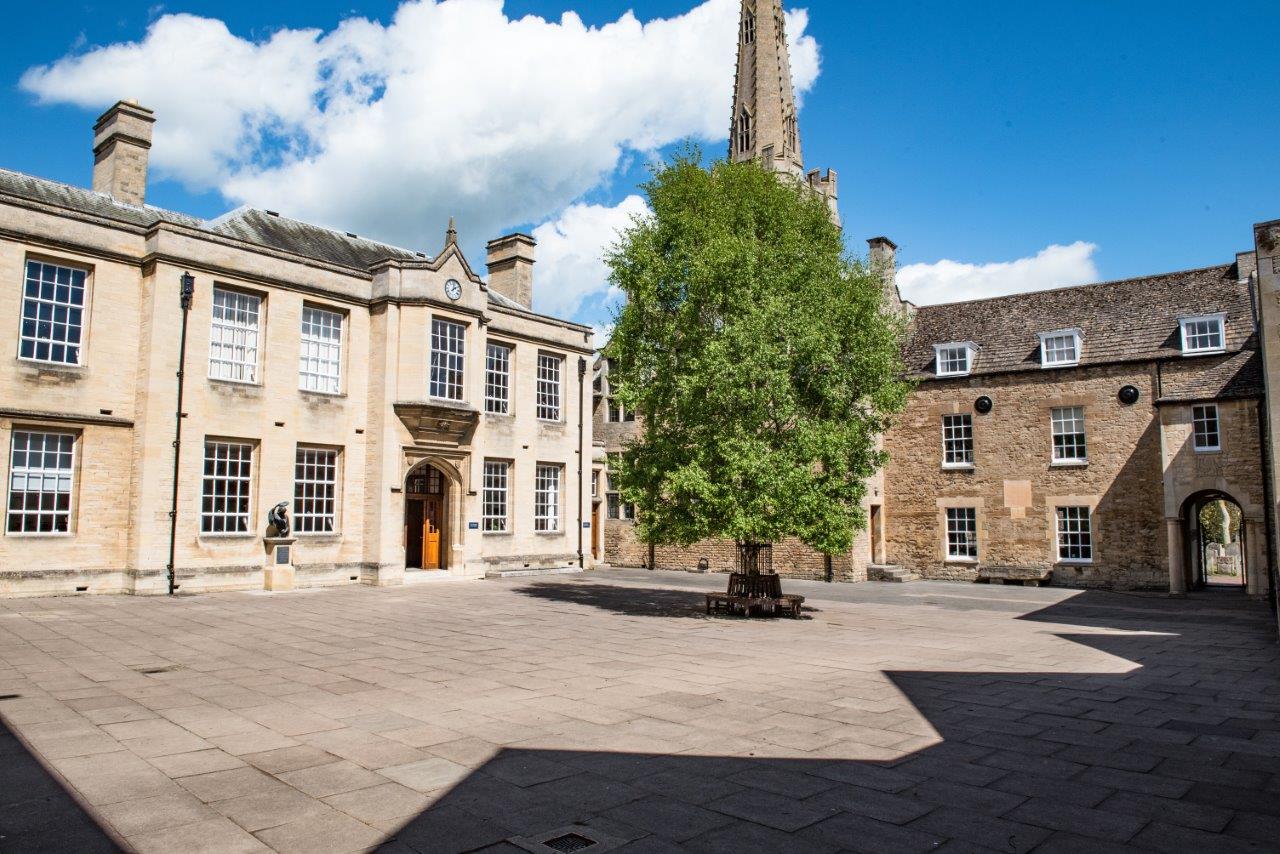


The humanities at Oundle School are based in Cloisters, at the heart of the School. We offer a wide range of subjects, including Geography, History, Theology, Philosophy and Religion (TPR), and Classics. Our aim is to develop in our pupils a deep understanding of the human experience, both past and present.
These subjects help pupils to develop critical thinking skills, empathy, and a global perspective. They encourage pupils to think and learn for themselves, to ask challenging questions, and to communicate their ideas effectively.
The humanities are core subjects for all junior pupils, and are taught as individual subjects by subject specialists. We also offer a wide range of courses at GCSE and A Level, as well as a variety of enrichment opportunities, such as lectures, workshops, and trips. Our pupils achieve excellent results in their examinations, and many go on to study humanities subjects at top universities around the world.
Subjects taught here
Classics is a thriving department at Oundle, with ten classicists on staff, making it one of the largest Classics departments in the country. We are really proud of our Oxbridge successes, with 45 pupils successfully securing offers between 2007 and 2024. The department is increasingly cited as one of the draws for new applicants to our Sixth Form. We passionately believe that Classics has much to offer in the intellectual, social, artistic, moral and cultural development of our pupils.
All pupils study Latin from the First to the Third Form. While we focus primarily on language acquisition, we also explore a variety of history and civilisation topics. Around 90 pupils opt for Latin GCSE each year and between 15 and 25 pupils for A level. These levels of uptake for this subject are quite unusual and are a testament to the quality of teaching and passion amongst pupils and staff within the department!
Greek is available from the First Form, where it is offered in a carousel with German and Mandarin, with pupils opting to continue at the end of the year. Typically, we have a GCSE set of around 15 pupils and an A level set of 5 pupils.
Classical Civilisation is available as an A level at Sixth Form and is particularly suited to those interested in Literature, History, Drama, Politics and Philosophy. There is an annual uptake of around 20 pupils.
Studying History equips pupils with the knowledge, skills, and perspective needed to navigate the complexities of the modern world. It goes far beyond memorising dates and facts; it’s a discipline that involves critical analysis, interpretation, and understanding of how the past shapes our present and influences our future. All pupils in First through to Third Form study History with a large number of pupils pursuing the subject at both GCSE and A level, with a significant number progressing to top university to read History related subjects.
Geography is a dynamic, academic subject that is constantly evolving. The importance of Geography as a subject has never been greater, with climatic and demographic changes having significant global impacts, as well as the spatial connections that have enabled not just global trade to flourish but have encouraged the development of low-income countries worldwide. An understanding of the issues we cover will enable pupils to contribute to the social, economic, political and environmental challenges that will shape their future. Geography is compulsory for all First, Second and Third Form and is a popular option at GCSE and A level. We follow the Edexcel IGCSE and OCR specification at A level.
Our results are excellent and every year a significant number of pupils go on to study Geography or a related discipline at university. Twice a week we run drop-in Academic Surgeries to support pupils in all year groups. We also have a very popular Geography Society which offers Sixth Form enrichment activities in the form of talks from visiting speakers, enabling pupils to expand their geographical thinking beyond the A Level syllabus.
Theology, Philosophy, and Religion is a highly regarded and popular subject at Oundle. The academic ethos of the department is focused on the Abrahamic religions, particularly Christianity, which reflects the School’s Christian character. World Religions also feature at various points of the curriculum.
Theology, Philosophy, and Religion (TPR) is compulsory from First to Third form, at which point the subject becomes optional. In Fourth Form pupils study Christianity and Islam and follow the Edexcel IGCSE curriculum. For Sixth Form we study the OCR syllabus, taking the Philosophy of Religion, Ethics, and Christian Theology papers.
The department offers a number of trips for junior pupils each year to visit places of interest such as Peterborough Mosque and Walsingham. Overseas trips have been organised to Istanbul, Israel and Grenada. The TPR society hosts an impressive range of external speakers each year.
Morwenna Chapman, Director of Teaching and Learning and Teacher of GeographyOur pupils are really intellectually curious and interested in the world around them – they want to contribute globally.
The eastern side of the Cloisters was built in 1763 and 1799 as accommodation for the Headmaster and pupils. The “Names of Pupils 1799” were inscribed in stone alongside the foundation stone. In 1880, plans by Mr Joseph Gwilt were begun to build the Cloisters, comprising a range of buildings forming a quadrangle with the original Old School House, and adding classrooms, a large hall, a library, museum and laboratory.

